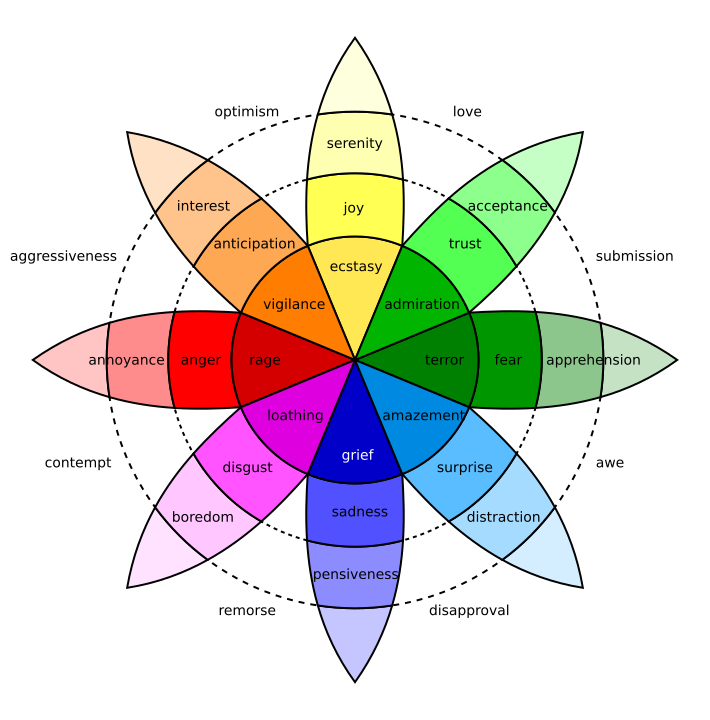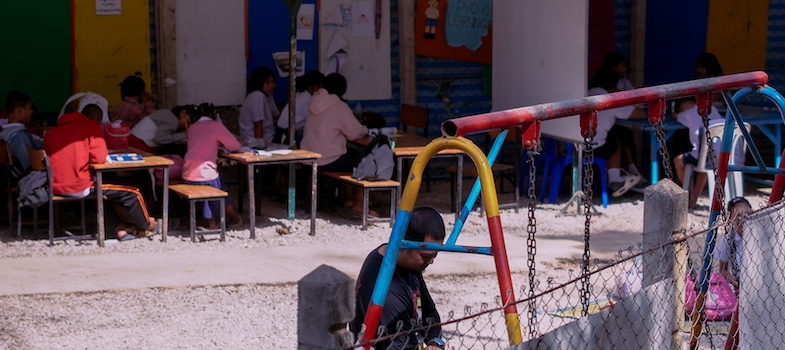3.3 Supporting learners’ emotional wellbeing and development
In the video, two teachers in a Karenni refugee camp talk about the benefits of supporting students to express their feelings. They show some ways of helping students to relax and feel comfortable by doing physical activities which are both fun and also related to the subject being taught. They also do breathing exercises with the learners to help them feel relaxed.
While these exercises help create an environment where students feel safe to talk about their emotions, it is important to help the learners identify their emotions. For example, are they feeling sad, scared, or angry? These teachers sometimes use visual tools to help their students talk about their emotions. Below are two examples of such tools:
A Blob Tree, which involves students looking at an image of a tree with blob-like characters in different positions, e.g. one is climbing the tree, one is sitting in a relaxed manner on a branch, and one might be falling from a branch. Students choose different blobs that illustrate how they feel about different aspects of their lives. For an example and ideas on how to use this idea in teaching see Blob Tree on Wikipedia.
A Wheel of Emotions, for example the one designed by American psychologist, Plutchik, which provides vocabulary for talking about a range of emotions.

Figure 1: Robert Plutchik’s Wheel of Emotions (Wikipedia, public domain)
Over to you
In the forum below, please share your responses to the following questions:
- How do you help your learners to identify and talk about their emotions?
- How do you find out what your learners’ needs are with respect to their social and emotional well-being?
- What activities have you used to support learners’ social and emotional well-being and development?
- Could you use any of the techniques you have learned about in this course to help support your learners’ emotional well-being and development? (You might want to look back at steps 1.5, 2.9 or 2.10 to remind yourself of some of the ideas we discussed earlier.)
© UCL and the Inclusive Education Foundation (CoMOOCs Team), CC BY 4.0
